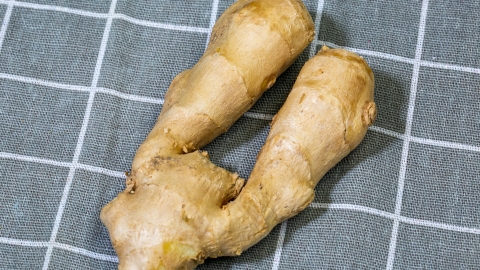Is it safe to eat ginger that has sprouted?
Generally speaking, sprouted ginger is edible as long as the ginger itself hasn't rotted, molded, or developed an unusual odor. After removing the sprout eyes and a small surrounding portion, it can still be consumed normally, although its taste and nutritional value may slightly decrease. Detailed explanation is as follows:

Ginger sprouting is a common natural phenomenon, primarily caused by the ginger using its own nutrients to generate new sprouts during storage. This process does not produce harmful substances. If the ginger's skin is intact, the texture is firm, and there are no signs of softness, blackening, mold spots, or strong unpleasant odors, then after thoroughly cutting away the sprouted eyes and about 1-2 centimeters around them, the remaining portion can still be used for cooking, such as stir-frying, stewing soups, or pickling, without posing any health risks. However, sprouting consumes some nutrients inside the ginger, leading to a reduction in spiciness and aroma compared to fresh ginger.
In daily life, ginger should be stored in a cool, dry, and well-ventilated place, avoiding direct sunlight and humid conditions. One can store ginger by burying it in sand or wrapping it in breathable paper to delay sprouting. When purchasing, buy according to need, avoid storing excessive amounts at once, and prioritize consuming fresh ginger to ensure optimal flavor and nutrition.








